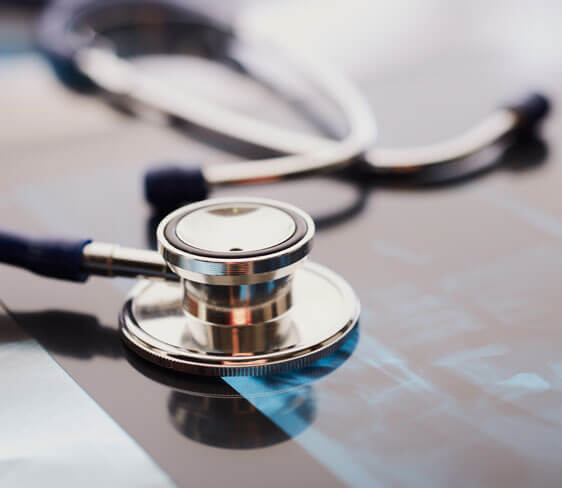Knee Diagnosis and Treatment Services
UPMC Orthopaedic Care provides a full range of orthopaedic knee services to help reduce knee pain and improve your mobility. Whether you have acute (sudden) or chronic (ongoing) knee pain or have had knee trauma, our experts provide testing, nonsurgical, and surgical treatment options. Our goal is to help get you moving and support you every step of the way, from diagnosis to treatment.
How to Make an Appointment
Orthopaedic knee services are available at all UPMC locations:
Ask your GP for a referral and visit UPMC Orthopaedic Care to learn more about our knee services. Our locations are close to major road networks and public transport routes. Find out more about travelling to a UPMC location near you.
Knee Services and Treatments
Orthopaedic consultants are experts in their field. They have advanced training and expertise in managing a full range of orthopaedic knee issues related to the:
- Bones
- Joints
- Ligaments
- Tendons
- Muscles
- Nerves
They use advanced, non-invasive and surgical techniques to provide the highest level of care to patients.
Our UPMC Orthopaedic Care consultants also work closely with our physiotherapists, and pain management doctors to determine the best course of non-surgical treatment when appropriate.
Imaging and testing
The first step in helping you get relief from your knee pain is to determine the cause. Consultants at UPMC Orthopaedic Care use a variety of imaging and testing techniques to diagnose and plan your treatment. These may include:
- Arthroscopy: This minimally invasive procedure involves inserting a tiny tube with a camera (an arthroscope) into the knee joint to look for damage.
- Computed tomography (CT): A CT scan is a painless test that takes a cross-sectional image of your knee using a special X-ray machine.
- Magnetic resonance imaging (MRI): MRI is an imaging technology that creates detailed pictures of your knee. It evaluates bone breakdown or injury.
- Ultrasound: Ultrasound uses reflected sound waves to produce an image of muscles, tendons, ligaments, nerves, and joints.
- X-ray: A conventional X-ray scans your leg to detect an injury.
Knee injury treatments
Knee pain does not always require surgery. Whenever possible, consultants use non-surgical or minimally invasive treatments for knee injuries and conditions. Depending on your diagnosis, you may benefit from:
- Alternative treatments such as acupuncture or manual therapy.
- Joint injections or medicines to reduce pain or swelling
- Physiotherapy: rehabilitative exercises to strengthen or increase the mobility of the muscles, ligaments, and tissues around your knee.
To postpone or avoid having to replace your knee joint, doctors may choose treatments such as:
- Knee arthroscopy: A surgeon makes small incisions and uses a camera as a guide as they insert other tools to repair the damaged area.
- Core decompression: Surgeons drill a hole into the bone to relieve internal pressure and allow new blood vessels and cells to reach the area of compromised bone.
- Osteotomy: This helps relieve knee pain that worsen because of deformity. A surgeon cuts and reshapes one of the bones on either side of your knee joint. This shifts the weight from the damaged part of your knee to the other side of the knee.
In some cases, a joint replacement is the best solution. UPMC's orthopaedic knee department specialises in joint replacement and revision surgery. The surgery often relieves pain and immobility.
Your consultant may recommend:
- Total joint replacement: In knee replacement surgery, surgeons remove arthritic surfaces and resurface the knee with metal and polyethylene components. The artificial joint can last for 15-20 years.
- Partial joint replacement: Here, surgeons replace only one side of the joint. It results in a faster recovery but not everyone is a good candidate.
Should knee surgery be necessary, UPMC offers laminar flow theatres. These provide the optimum setting for orthopaedic surgery because they minimise any risk of surgical site infection. Our hospitals also feature a dedicated inpatient ward with specialised nursing to aid recovery.
The features of UPMC's joint replacement service include:
- Pre-assessment service with in-house consultant cardiologist and senior physiotherapist.
- A rapid recovery programme (four to five days).
- Full-time, 24-hour GP.
- Specialist pain-management techniques.
- Oral anticoagulant medicine after surgery.
Each patient's care plan depends on the diagnosis, medical history, and overall health.
Knee Conditions we Treat
UPMC's orthopaedic experts treat a wide range of diseases and conditions affecting your knees. They work with patients of all ages to treat and manage these and other conditions:
- Osteoarthritis: a condition that causes cartilage to break down due to aging or abnormal wear of the joints.
- Rheumatoid arthritis: an autoimmune disease in which the body's immune system attacks cartilage in the joints.
- Arthritis: due to trauma — fractured bones or injuries that damage the joint beyond repair. Arthritis can also be a result of congenital and genetic disorders.
- Knee cartilage or meniscus tears.
- Injuries to the ACL (Anterior cruciate ligament): the ligament in the centre of your knee.
- Injuries to the PCL (Posterior cruciate ligament): the ligament in the back of the knee.
- Injuries to the ACL (Anterior cruciate ligament), MCL (Medial Collateral ligament) and PCL (Posterior cruciate ligament) – The ligaments that make up the front, centre and back of the knee.
Why Choose UPMC?
UPMC Orthopaedic care is a part of a renowned international network and a leader in the full spectrum of knee treatments. Our experienced consultants use the most advanced testing and treatments to help you with your orthopaedic diagnosis.
Additionally, we are long term partners of the HSE (Health Service Executive) and private insurers. We work diligently to ensure everyone has access to high-quality healthcare delivered in a timely fashion.


